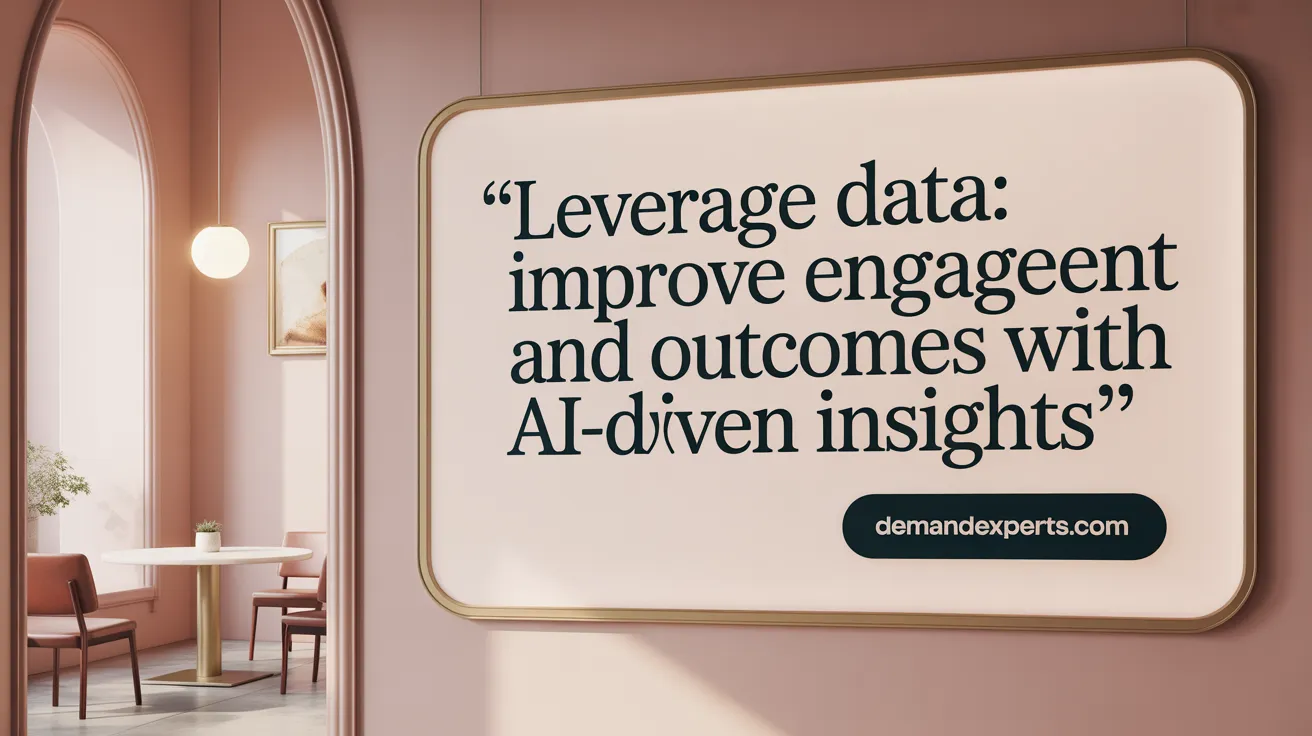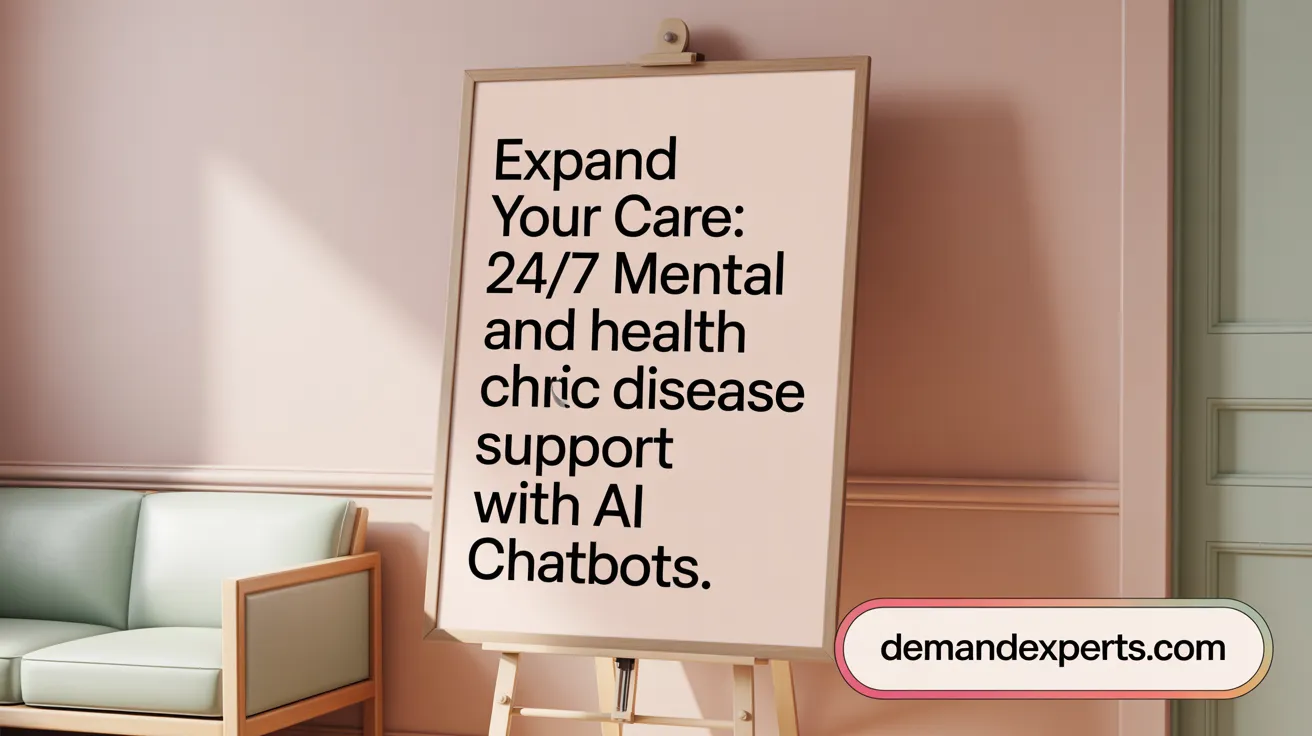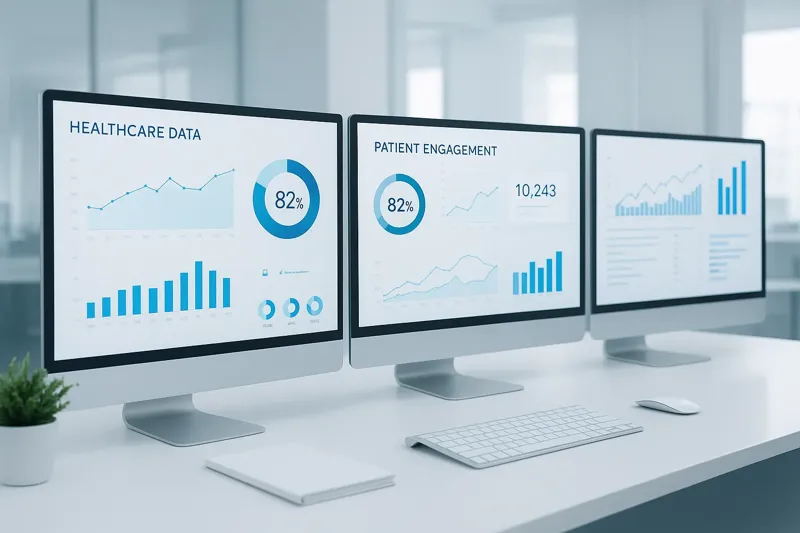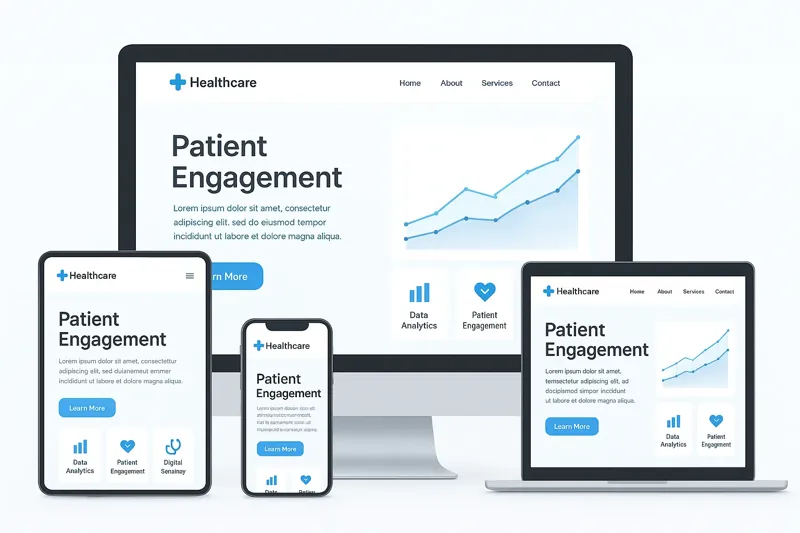Introduction to AI Live Chat in Medical Practices
Overview of AI live chat technology in healthcare
AI live chat technology uses conversational artificial intelligence to simulate human-like interactions through text or voice. In medical practices, these tools facilitate instant, 24/7 communication by answering patient queries, scheduling appointments, and providing timely health information. Powered by natural language processing and machine learning, AI live chat continually learns from interactions to enhance response accuracy and personalize patient engagement.
Importance of patient engagement
Effective patient engagement is crucial for improving adherence, satisfaction, and health outcomes. AI live chat offers personalized communication and continuous availability, enabling patients to access support and information whenever needed. This enhances convenience and fosters trust, ultimately leading to more proactive health management and reduced appointment no-shows.
Challenges in medical practice communication
Medical practices often face communication hurdles such as limited staff capacity, delayed responses to patient inquiries, and administrative burdens that affect operational efficiency. Patients may experience frustration due to long wait times or difficulty accessing timely assistance, which can negatively impact care quality and retention.
How AI live chat addresses these challenges
AI live chat automates routine tasks like appointment scheduling, reminders, and preliminary symptom assessment, significantly reducing staff workload. Its 24/7 availability ensures patients receive immediate responses around the clock, bridging gaps outside office hours. Integration with electronic health records allows real-time, personalized interactions that improve accuracy and patient satisfaction, thereby enhancing overall communication efficiency within medical practices.
Key Facts on AI-Enhanced Healthcare Support
- Round-the-clock AI-powered chatbots provide continuous access to medical information, reducing wait times and improving patient satisfaction.
- Personalized AI interactions use patient data and EHR integration to foster trust, enhance engagement, and support treatment adherence, achieving up to 97% compliance.
- AI scheduling solutions automate appointment bookings and reminders, significantly decreasing no-shows, boosting revenue, and streamlining clinic workflows.
- Symptom-checking AI supports early detection, directs patients to appropriate care, and reduces unnecessary emergency visits, improving health outcomes.
- Automation of administrative tasks alleviates staff workload, reduces clinician burnout, and enables high patient volume management without additional staffing.
- Integration with EHR systems allows chatbots to access and update real-time, patient-specific data, improving the accuracy and personalization of care.
- Multilingual support broadens healthcare access, reduces language barriers, and promotes health equity for diverse and underserved populations.
- AI-driven data insights identify care gaps, monitor risk patterns, and support predictive interventions that enhance patient outcomes and optimize resource use.
- Cost savings and operational efficiency are achieved through automation, reducing staffing costs, lowering operational expenses, and increasing clinic throughput.
- Support for mental health and chronic disease management through empathetic, accessible AI chatbots reduces stigma, promotes adherence, and enables continuous patient monitoring.
24/7 Availability Enhances Patient Access and Satisfaction

Constant Accessibility for Patient Inquiries
AI-powered chatbots and conversational AI platforms provide healthcare patients with round-the-clock access to medical information and assistance. Unlike traditional office hours, these systems never close, enabling patients to ask questions, receive symptom assessments, and schedule appointments at any time of day or night without delay.
Reduction of Patient Wait Times
By automating routine inquiries and appointment bookings, 24/7 AI chat solutions significantly reduce wait times patients often experience with phone or in-person contacts. Patients can instantly get responses to common questions or begin care navigation while maintaining their busy schedules.
Improved Patient Satisfaction Through Instant Responses
Immediate, humanlike interactions foster trust and convenience, improving overall patient satisfaction. Healthcare providers witness higher engagement rates and adherence to care plans thanks to prompt communication. AI chatbots offer personalized recommendations, reminders, and educational content, ensuring patients feel supported throughout their care journeys.
Support Outside Business Hours and During High Volumes
The non-stop availability of AI-powered chatbots in healthcare ensures that patient engagement continues even after office hours or during peak call volumes. This constant presence alleviates patient frustrations caused by limited access, creating a more responsive and accessible healthcare experience. It also enables providers to optimize resource allocation by reducing routine workload on staff.
Through 24/7 conversational AI-powered support, healthcare organizations can deliver superior patient access, boost satisfaction, and enhance clinical and operational efficiency simultaneously.
2. Personalized Interactions Foster Trust and Treatment Adherence
Use of patient data to customize communication
AI-powered chatbots in healthcare utilize patient-specific information, including health history, preferences, and behaviors, to deliver highly personalized interactions. By integrating with Electronic Health Records (EHRs), these systems access real-time data to tailor communication that resonates with each patient's unique medical context.
Tailored medication reminders and care plans
Personalized reminders tailored to individual treatment regimens optimize medication adherence. Chatbots provide customized care plans and send timely notifications that are adjusted according to patient schedules and clinical needs, enhancing engagement and reducing missed doses.
Improved patient trust and engagement
Patients respond positively to interactions that reflect an understanding of their specific situation, which fosters trust. AI chatbots offer consistent, empathetic, and data-driven communication, creating a judgment-free environment that encourages patients to actively participate in their care.
Enhanced adherence to treatment through individualized support
Individualized support ensures messaging and follow-up are relevant and actionable. This personalization has been shown to improve adherence rates significantly, with some AI systems achieving up to 97% treatment plan compliance. By demystifying medical instructions and offering continuous engagement, AI chatbots strengthen patient commitment to health outcomes. See Benefits of conversational AI for more information.
3. Efficient Appointment Scheduling Reduces No-Shows and Boosts Revenue

Automated booking, rescheduling, and reminders
AI chatbots and conversational AI systems enable automated appointment booking, rescheduling, and timely reminders for patients. These systems operate 24/7, allowing patients to schedule or modify appointments at their convenience without the need to wait for office hours or hold phone calls. Automation also includes handling common queries related to scheduling, further easing patient access.
Reduction in missed appointments
With AI sending automated reminders and facilitating easy rescheduling, healthcare providers experience a significant decrease in no-shows. This improvement ensures better appointment adherence and reduces gaps in scheduling, which otherwise result in lost revenue and inefficient use of clinical time.
Streamlined workflow for staff
Automating routine scheduling tasks relieves administrative staff from repetitive duties, enabling them to focus on complex tasks and direct patient care. The streamlined workflow reduces call volume and manual data entry, contributing to operational efficiency.
Impact on clinic revenue and resource optimization
Efficient appointment management translates into higher patient volume and reduced idle staff time, directly increasing clinic revenue. Instances such as OSF HealthCare’s deployment of a virtual health assistant led to multimillion-dollar savings by enhancing patient engagement, reducing call traffic, and optimizing appointment utilization. Clinics gain improved resource allocation and enhanced patient satisfaction through reliable appointment adherence facilitated by AI-driven scheduling tools.
4. Symptom Checking and Triage Support Improve Care Quality and Access
AI-assisted symptom assessment
AI-powered chatbots use natural language processing in healthcare chatbots and machine learning in healthcare chatbots to assess patient symptoms accurately and efficiently. By engaging patients in human-like dialogues, these systems collect detailed symptom descriptions and identify potential health issues. This real-time interaction supports early detection of conditions and helps patients understand their symptoms without delay.
Guiding patients to appropriate care pathways
Conversational AI in healthcare directs patients toward the most appropriate care settings based on symptom severity and urgency. Automated triage algorithms analyze input data to recommend self-care, primary care visits, or emergency services as needed. This guidance optimizes patient flow and ensures that healthcare resources are utilized effectively.
Reducing unnecessary emergency visits
By offering precise symptom assessment and triage, AI chatbots in healthcare reduce non-urgent emergency department visits. Patients receive informed advice for managing minor conditions at home or scheduling timely appointments, minimizing overcrowding and wait times in emergency settings. This results in cost savings and better allocation of emergency care.
Enhancing timely care delivery and outcomes
Immediate symptom checking through AI enables faster clinical decision-making and timely intervention. Patients gain access to critical information round the clock, which supports early treatment and improves health outcomes. Continuous monitoring and follow-up via chatbots also foster adherence to care plans and better management of chronic diseases.
5. Automation Reduces Administrative Burden and Staff Burnout
Streamlining repetitive tasks
AI-powered conversational chatbots and virtual assistants automate routine administrative tasks such as appointment scheduling, reminders, billing inquiries, and medical FAQs. By handling call volume typically managed by front desk staff, these tools reduce reliance on traditional phone services and online portals. Automation accelerates patient appointment booking and rescheduling, cutting down no-show rates and no-waste opportunities.
Freeing healthcare staff to focus on complex care
With AI systems managing routine requests and inquiries, healthcare staff are relieved from repetitive workloads, enabling them to focus on more complex clinical and patient care activities. This shift enhances operational efficiency, as medical professionals spend more time applying their expertise directly to patient needs rather than administrative duties.
Impact on clinician burnout and workflow efficiency
Health AI tools significantly lower clinician cognitive load by automating documentation, data entry, patient communication, and follow-up reminders. Reduction in manual workload helps alleviate burnout caused by administrative burden and time pressures. Studies report up to a 40% increase in operational efficiency in healthcare facilities adopting AI-powered chatbots in healthcare. Additionally, AI-generated assistance in drafting patient messages improves communication quality and responsiveness, further contributing to clinician satisfaction.
Handling high patient volumes without increasing staff
AI chatbots scale smoothly to manage large volumes of patient interactions simultaneously without the need to increase personnel. This scalability supports practices and health systems facing growing demand. Around-the-clock availability ensures continuous patient engagement and reduces wait times. Such automation enables small practices to maintain high service levels and large facilities to handle surges in patient communication efficiently.
Integrating conversational AI in healthcare into healthcare administration thus improves workflow, mitigates burnout, lowers operational costs, and enhances patient satisfaction by ensuring timely, personalized service.
6. Integration with Electronic Health Records Enables Real-Time Data Access
Seamless connection between chatbots and EHR systems
AI chatbots in healthcare are designed to integrate seamlessly with Electronic Health Records (EHR) systems. This integration allows chatbots to function within existing clinical workflows by accessing patient data securely and efficiently. Healthcare organizations employ API-driven interfaces to connect chatbots to EHR platforms, ensuring interoperability and maintaining compliance with healthcare data regulations such as HIPAA.
Access to patient-specific information during interactions
Integration with EHR enables chatbots to retrieve patient-specific medical histories, medication lists, and appointment schedules during conversations. This capability allows for personalized responses tailored to individual patient needs, improving the relevance and quality of information provided. For example, chatbots can deliver medication reminders aligned with a patient's prescription data or offer targeted health advice considering recent lab results.
Updating records in real time
Beyond retrieving information, AI chatbots in healthcare are capable of updating EHRs in real time based on patient interactions. They can log appointment confirmations, symptom reports, and follow-up data automatically, reducing administrative workload and minimizing documentation errors. This continuous data exchange enhances the accuracy of patient records and supports timely clinical decisions.
Enhancing accuracy and personalization of care
The synergy between conversational AI and EHR systems facilitates improved accuracy by providing clinicians with comprehensive, up-to-date patient data. Moreover, it enables personalized care through tailored patient engagement strategies such as customized educational content and proactive reminders. This integration ultimately contributes to better health outcomes, increased patient satisfaction, and operational efficiencies for healthcare providers.
7. Multilingual Support Expands Accessibility and Health Equity
Providing information in multiple languages
AI-powered healthcare chatbots and virtual assistants now offer support in multiple languages, enabling diverse patient populations to receive health information and services in their preferred language. This capability reduces language barriers that often impede access to care for non-English speakers.
Reducing barriers for non-English speakers
By delivering accurate, culturally sensitive medical advice, appointment scheduling, reminders, and triage support in various languages, AI chatbots in healthcare help patients navigate healthcare systems more effectively. This fosters greater engagement and adherence to treatment plans among populations traditionally underserved due to language constraints.
Supporting diverse patient populations
Multilingual chatbots do not simply translate text; they use natural language processing in healthcare AI and machine learning in healthcare AI to understand linguistic nuances and dialects, enhancing communication quality. This ensures that information is not only accessible but also easily understood, catering to ethnically and linguistically diverse patient groups.
Promoting equitable access to healthcare services
The adoption of multilingual conversational AI in healthcare aligns with health equity goals by expanding healthcare accessibility to marginalized communities. It empowers patients with limited English proficiency to receive timely health guidance, reducing disparities in healthcare utilization and outcomes. Ultimately, this technology supports inclusive patient engagement and contributes to narrowing systemic health gaps.
8. Data-Driven Insights Enhance Patient Engagement and Care Delivery

Collecting real-time patient data and interaction analytics
AI chatbots serve as continuous data collection tools, capturing real-time patient information such as symptom updates, medication adherence, mood changes, and appointment interactions. This data helps healthcare providers gain deeper insights into patient health status beyond clinical visits. Interaction analytics allow organizations to understand common patient inquiries and engagement patterns, optimizing chatbot responses and workflows to better serve patient needs. For more detailed information, see AI chatbots boosting patient engagement and reducing clinician workload and AI chatbots in healthcare.
Identifying risk patterns and care gaps
Through advanced machine learning algorithms, the aggregated data from chatbot interactions can reveal risk patterns and care gaps in patient populations. Healthcare systems can detect early signs of deterioration in chronic conditions or recognize missed follow-up care, enabling timely interventions. Predictive analytics identify patients at risk for non-adherence or hospitalization, guiding resource allocation toward those who need it most. Learn more about AI for predictive analytics in patient care and Healthcare Chatbots.
Supporting predictive interventions
Data-driven insights from AI enable proactive care models that anticipate patient needs before clinical emergencies arise. Predictive models can trigger personalized reminders, symptom monitoring, or outreach for preventive screenings and medication adjustments. This proactive approach reduces avoidable hospital visits, decreases healthcare costs, and improves overall patient outcomes. Additional insights are available in Conversational AI in healthcare and AI Chatbots in Healthcare.
Guiding personalized patient outreach and education
Leveraging collected data, AI systems tailor communication strategies by individualizing educational content, appointment reminders, and health tips based on patient history, preferences, and risk factors. Personalized messaging enhances patient trust and engagement, contributing to higher adherence rates and better health management. Additionally, predictive insights inform healthcare providers when to adjust outreach tactics to optimize patient responsiveness and satisfaction. Refer to AI in patient engagement, AI-powered Patient Communication, and How AI Chatbots Advance Healthcare for further reading.
9. Cost Savings and Operational Efficiency Benefit Medical Practices
Reduction of operational costs through automation
AI-powered chatbots and conversational AI in healthcare streamline routine administrative tasks such as appointment scheduling, reminders, patient triage, and data management. This automation leads to significant reductions in staffing needs and labor costs—industry estimates suggest annual savings up to $150 billion globally. By automating these repetitive functions, healthcare providers can redirect resources towards more complex patient care activities.
Decreased no-shows and appointment management efficiency
AI chatbots efficiently handle appointment bookings, confirmations, and rescheduling through instant, personalized communication. Automated reminders improve patient adherence, substantially reducing no-show rates. Lower no-shows directly translate into better utilization of clinic time slots and increased revenue opportunities. Learn more about AI chatbots for appointment scheduling.
Financial benefits from call diversion and staffing optimization
AI virtual assistants divert routine queries and scheduling calls from front desk staff, easing call volume by up to 60% as reported by institutions like the Cleveland Clinic. This lowers telephone staffing demands and reduces wait times, contributing to improved operational workflows and patient satisfaction. For example, OSF HealthCare realized savings of $2.4 million in one year from chatbot implementation through call diversion and increased appointment revenue. See how chatbots enhance patient care and reduce workload.
Scalable solutions for practices of all sizes
Conversational AI tools are adaptable for medical practices ranging from small private offices to large healthcare systems. Small practices benefit from 24/7 patient engagement without adding staff, while large institutions handle high patient volumes with consistent efficiency. This scalability ensures that cost-effective operational improvements are accessible across diverse healthcare settings, enhancing both financial performance and patient experience. More about conversational AI in small private practices.
10. Enhancing Mental Health Support and Chronic Disease Management

How Do AI Chatbots Provide 24/7 Mental Health Assistance?
AI chatbots offer round-the-clock access to mental health support by engaging users through natural language processing in chatbots and machine learning. These virtual assistants provide a nonjudgmental environment where individuals can discuss their feelings anytime, increasing comfort and accessibility, especially for those with limited access to traditional mental health services. Features include cognitive behavioral therapy and AI chatbots, mindfulness exercises, and immediate crisis management resources such as emergency contacts. Chatbots like Woebot and Ginger demonstrate high usability and user satisfaction, helping reduce mental health stigma and promote engagement. For more on Chatbots for Mental Health Support, see Chatbots for Mental Health Support.
How Do AI Chatbots Support Medication Adherence and Lifestyle Management for Chronic Illnesses?
For chronic disease management, AI chatbots personalize care plans by sending medication reminders via AI chatbots, lifestyle advice, and health education tailored to individual patient data and preferences. This customization encourages adherence to treatment regimens and supports behavior change. Continuous engagement from chatbots helps monitor patient progress and prompts timely interventions, leading to improved outcomes. Integration with wearable devices and electronic health records enhances real-time patient data collection and response. Additional insights into chronic disease management chatbots provide valuable examples.
How Do AI Chatbots Reduce Stigma Through Judgement-Free Communication?
By providing an always-available, confidential, and empathetic interface, AI chatbots create a safe space for users to share sensitive health information without fear of judgment. This openness encourages patients to seek help early and discuss mental or chronic conditions honestly. The stigma reduction is particularly important in underserved or remote populations, which might otherwise face barriers to accessing care. See more about reducing health literacy barriers and stigma with AI chatbots.
How Do AI Tools Support Continuous Monitoring and Follow-Up?
AI chatbots facilitate ongoing patient monitoring by tracking symptoms, medication adherence, and mood changes between clinical visits. They provide timely reminders and can alert healthcare providers if concerning patterns emerge, enabling proactive management. Follow-up care is reinforced through educational content and personalized communication, which fosters patient engagement and adherence to treatment plans. Learn about remote patient monitoring and AI-driven chatbots and AI-powered chatbots in healthcare.
Overall, AI chatbots are proving to be transformative tools in mental health support and chronic disease management by offering accessible, personalized, and stigma-free communication that enhances continuous care and patient outcomes. For a comprehensive overview, see how AI-powered chatbots in healthcare contribute to improving patient engagement and care delivery.
The Future of Patient Engagement with AI Live Chat
Transformational Benefits of AI Live Chat in Healthcare
AI live chat solutions have revolutionized patient engagement by providing continuous, real-time interactions that improve access to health information and services. Enabled through advanced Natural Language Processing (NLP) and machine learning, these technologies support tasks ranging from appointment scheduling and symptom triage to personalized medication reminders and post-treatment follow-up. With 24/7 availability, AI chatbots significantly reduce administrative burdens on healthcare staff, increasing operational efficiency and enhancing patient satisfaction.
Ensuring HIPAA Compliance and Patient Data Security
Critical to the adoption of AI live chat is the strict adherence to HIPAA regulations that protect sensitive patient information. Industry-standard encryption, secure data storage, audit trails, and controlled access ensure confidentiality and build patient trust. Compliance not only mitigates legal risks but also fosters a secure environment where patients feel confident sharing personal health data.
AI Complements Human Healthcare Providers
AI chatbots are designed to augment, not replace, healthcare professionals. They automate routine tasks, freeing clinicians to focus on complex care and personalized patient interactions. Furthermore, AI supports clinicians by providing data-driven insights and assisting with patient monitoring, promoting more informed clinical decision-making. Human oversight remains essential for accuracy and empathy in patient care.
Innovation and Integration in Medical Practices
The trajectory of AI live chat adoption in healthcare is robust, with increasing integration into Electronic Health Records, telemedicine platforms, and other clinical systems. Emerging advancements incorporate emotional intelligence, predictive analytics, and personalized content delivery, driving a more proactive and tailored patient experience. As adoption expands, small and large practices alike will benefit from scalable, compliant, and sophisticated AI solutions that enhance patient engagement and operational performance.
Introduction to AI Live Chat in Medical Practices
Overview of AI live chat technology in healthcare
AI live chat technology uses conversational artificial intelligence to simulate human-like interactions through text or voice. In medical practices, these tools facilitate instant, 24/7 communication by answering patient queries, scheduling appointments, and providing timely health information. Powered by natural language processing and machine learning, AI live chat continually learns from interactions to enhance response accuracy and personalize patient engagement.
Importance of patient engagement
Effective patient engagement is crucial for improving adherence, satisfaction, and health outcomes. AI live chat offers personalized communication and continuous availability, enabling patients to access support and information whenever needed. This enhances convenience and fosters trust, ultimately leading to more proactive health management and reduced appointment no-shows.
Challenges in medical practice communication
Medical practices often face communication hurdles such as limited staff capacity, delayed responses to patient inquiries, and administrative burdens that affect operational efficiency. Patients may experience frustration due to long wait times or difficulty accessing timely assistance, which can negatively impact care quality and retention.
How AI live chat addresses these challenges
AI live chat automates routine tasks like appointment scheduling, reminders, and preliminary symptom assessment, significantly reducing staff workload. Its 24/7 availability ensures patients receive immediate responses around the clock, bridging gaps outside office hours. Integration with electronic health records allows real-time, personalized interactions that improve accuracy and patient satisfaction, thereby enhancing overall communication efficiency within medical practices.
Key Facts on AI-Enhanced Healthcare Support
- Round-the-clock AI-powered chatbots provide continuous access to medical information, reducing wait times and improving patient satisfaction.
- Personalized AI interactions use patient data and EHR integration to foster trust, enhance engagement, and support treatment adherence, achieving up to 97% compliance.
- AI scheduling solutions automate appointment bookings and reminders, significantly decreasing no-shows, boosting revenue, and streamlining clinic workflows.
- Symptom-checking AI supports early detection, directs patients to appropriate care, and reduces unnecessary emergency visits, improving health outcomes.
- Automation of administrative tasks alleviates staff workload, reduces clinician burnout, and enables high patient volume management without additional staffing.
- Integration with EHR systems allows chatbots to access and update real-time, patient-specific data, improving the accuracy and personalization of care.
- Multilingual support broadens healthcare access, reduces language barriers, and promotes health equity for diverse and underserved populations.
- AI-driven data insights identify care gaps, monitor risk patterns, and support predictive interventions that enhance patient outcomes and optimize resource use.
- Cost savings and operational efficiency are achieved through automation, reducing staffing costs, lowering operational expenses, and increasing clinic throughput.
- Support for mental health and chronic disease management through empathetic, accessible AI chatbots reduces stigma, promotes adherence, and enables continuous patient monitoring.
24/7 Availability Enhances Patient Access and Satisfaction

Constant Accessibility for Patient Inquiries
AI-powered chatbots and conversational AI platforms provide healthcare patients with round-the-clock access to medical information and assistance. Unlike traditional office hours, these systems never close, enabling patients to ask questions, receive symptom assessments, and schedule appointments at any time of day or night without delay.
Reduction of Patient Wait Times
By automating routine inquiries and appointment bookings, 24/7 AI chat solutions significantly reduce wait times patients often experience with phone or in-person contacts. Patients can instantly get responses to common questions or begin care navigation while maintaining their busy schedules.
Improved Patient Satisfaction Through Instant Responses
Immediate, humanlike interactions foster trust and convenience, improving overall patient satisfaction. Healthcare providers witness higher engagement rates and adherence to care plans thanks to prompt communication. AI chatbots offer personalized recommendations, reminders, and educational content, ensuring patients feel supported throughout their care journeys.
Support Outside Business Hours and During High Volumes
The non-stop availability of AI-powered chatbots in healthcare ensures that patient engagement continues even after office hours or during peak call volumes. This constant presence alleviates patient frustrations caused by limited access, creating a more responsive and accessible healthcare experience. It also enables providers to optimize resource allocation by reducing routine workload on staff.
Through 24/7 conversational AI-powered support, healthcare organizations can deliver superior patient access, boost satisfaction, and enhance clinical and operational efficiency simultaneously.
2. Personalized Interactions Foster Trust and Treatment Adherence
Use of patient data to customize communication
AI-powered chatbots in healthcare utilize patient-specific information, including health history, preferences, and behaviors, to deliver highly personalized interactions. By integrating with Electronic Health Records (EHRs), these systems access real-time data to tailor communication that resonates with each patient's unique medical context.
Tailored medication reminders and care plans
Personalized reminders tailored to individual treatment regimens optimize medication adherence. Chatbots provide customized care plans and send timely notifications that are adjusted according to patient schedules and clinical needs, enhancing engagement and reducing missed doses.
Improved patient trust and engagement
Patients respond positively to interactions that reflect an understanding of their specific situation, which fosters trust. AI chatbots offer consistent, empathetic, and data-driven communication, creating a judgment-free environment that encourages patients to actively participate in their care.
Enhanced adherence to treatment through individualized support
Individualized support ensures messaging and follow-up are relevant and actionable. This personalization has been shown to improve adherence rates significantly, with some AI systems achieving up to 97% treatment plan compliance. By demystifying medical instructions and offering continuous engagement, AI chatbots strengthen patient commitment to health outcomes. See Benefits of conversational AI for more information.
3. Efficient Appointment Scheduling Reduces No-Shows and Boosts Revenue

Automated booking, rescheduling, and reminders
AI chatbots and conversational AI systems enable automated appointment booking, rescheduling, and timely reminders for patients. These systems operate 24/7, allowing patients to schedule or modify appointments at their convenience without the need to wait for office hours or hold phone calls. Automation also includes handling common queries related to scheduling, further easing patient access.
Reduction in missed appointments
With AI sending automated reminders and facilitating easy rescheduling, healthcare providers experience a significant decrease in no-shows. This improvement ensures better appointment adherence and reduces gaps in scheduling, which otherwise result in lost revenue and inefficient use of clinical time.
Streamlined workflow for staff
Automating routine scheduling tasks relieves administrative staff from repetitive duties, enabling them to focus on complex tasks and direct patient care. The streamlined workflow reduces call volume and manual data entry, contributing to operational efficiency.
Impact on clinic revenue and resource optimization
Efficient appointment management translates into higher patient volume and reduced idle staff time, directly increasing clinic revenue. Instances such as OSF HealthCare’s deployment of a virtual health assistant led to multimillion-dollar savings by enhancing patient engagement, reducing call traffic, and optimizing appointment utilization. Clinics gain improved resource allocation and enhanced patient satisfaction through reliable appointment adherence facilitated by AI-driven scheduling tools.
4. Symptom Checking and Triage Support Improve Care Quality and Access
AI-assisted symptom assessment
AI-powered chatbots use natural language processing in healthcare chatbots and machine learning in healthcare chatbots to assess patient symptoms accurately and efficiently. By engaging patients in human-like dialogues, these systems collect detailed symptom descriptions and identify potential health issues. This real-time interaction supports early detection of conditions and helps patients understand their symptoms without delay.
Guiding patients to appropriate care pathways
Conversational AI in healthcare directs patients toward the most appropriate care settings based on symptom severity and urgency. Automated triage algorithms analyze input data to recommend self-care, primary care visits, or emergency services as needed. This guidance optimizes patient flow and ensures that healthcare resources are utilized effectively.
Reducing unnecessary emergency visits
By offering precise symptom assessment and triage, AI chatbots in healthcare reduce non-urgent emergency department visits. Patients receive informed advice for managing minor conditions at home or scheduling timely appointments, minimizing overcrowding and wait times in emergency settings. This results in cost savings and better allocation of emergency care.
Enhancing timely care delivery and outcomes
Immediate symptom checking through AI enables faster clinical decision-making and timely intervention. Patients gain access to critical information round the clock, which supports early treatment and improves health outcomes. Continuous monitoring and follow-up via chatbots also foster adherence to care plans and better management of chronic diseases.
5. Automation Reduces Administrative Burden and Staff Burnout
Streamlining repetitive tasks
AI-powered conversational chatbots and virtual assistants automate routine administrative tasks such as appointment scheduling, reminders, billing inquiries, and medical FAQs. By handling call volume typically managed by front desk staff, these tools reduce reliance on traditional phone services and online portals. Automation accelerates patient appointment booking and rescheduling, cutting down no-show rates and no-waste opportunities.
Freeing healthcare staff to focus on complex care
With AI systems managing routine requests and inquiries, healthcare staff are relieved from repetitive workloads, enabling them to focus on more complex clinical and patient care activities. This shift enhances operational efficiency, as medical professionals spend more time applying their expertise directly to patient needs rather than administrative duties.
Impact on clinician burnout and workflow efficiency
Health AI tools significantly lower clinician cognitive load by automating documentation, data entry, patient communication, and follow-up reminders. Reduction in manual workload helps alleviate burnout caused by administrative burden and time pressures. Studies report up to a 40% increase in operational efficiency in healthcare facilities adopting AI-powered chatbots in healthcare. Additionally, AI-generated assistance in drafting patient messages improves communication quality and responsiveness, further contributing to clinician satisfaction.
Handling high patient volumes without increasing staff
AI chatbots scale smoothly to manage large volumes of patient interactions simultaneously without the need to increase personnel. This scalability supports practices and health systems facing growing demand. Around-the-clock availability ensures continuous patient engagement and reduces wait times. Such automation enables small practices to maintain high service levels and large facilities to handle surges in patient communication efficiently.
Integrating conversational AI in healthcare into healthcare administration thus improves workflow, mitigates burnout, lowers operational costs, and enhances patient satisfaction by ensuring timely, personalized service.
6. Integration with Electronic Health Records Enables Real-Time Data Access
Seamless connection between chatbots and EHR systems
AI chatbots in healthcare are designed to integrate seamlessly with Electronic Health Records (EHR) systems. This integration allows chatbots to function within existing clinical workflows by accessing patient data securely and efficiently. Healthcare organizations employ API-driven interfaces to connect chatbots to EHR platforms, ensuring interoperability and maintaining compliance with healthcare data regulations such as HIPAA.
Access to patient-specific information during interactions
Integration with EHR enables chatbots to retrieve patient-specific medical histories, medication lists, and appointment schedules during conversations. This capability allows for personalized responses tailored to individual patient needs, improving the relevance and quality of information provided. For example, chatbots can deliver medication reminders aligned with a patient's prescription data or offer targeted health advice considering recent lab results.
Updating records in real time
Beyond retrieving information, AI chatbots in healthcare are capable of updating EHRs in real time based on patient interactions. They can log appointment confirmations, symptom reports, and follow-up data automatically, reducing administrative workload and minimizing documentation errors. This continuous data exchange enhances the accuracy of patient records and supports timely clinical decisions.
Enhancing accuracy and personalization of care
The synergy between conversational AI and EHR systems facilitates improved accuracy by providing clinicians with comprehensive, up-to-date patient data. Moreover, it enables personalized care through tailored patient engagement strategies such as customized educational content and proactive reminders. This integration ultimately contributes to better health outcomes, increased patient satisfaction, and operational efficiencies for healthcare providers.
7. Multilingual Support Expands Accessibility and Health Equity
Providing information in multiple languages
AI-powered healthcare chatbots and virtual assistants now offer support in multiple languages, enabling diverse patient populations to receive health information and services in their preferred language. This capability reduces language barriers that often impede access to care for non-English speakers.
Reducing barriers for non-English speakers
By delivering accurate, culturally sensitive medical advice, appointment scheduling, reminders, and triage support in various languages, AI chatbots in healthcare help patients navigate healthcare systems more effectively. This fosters greater engagement and adherence to treatment plans among populations traditionally underserved due to language constraints.
Supporting diverse patient populations
Multilingual chatbots do not simply translate text; they use natural language processing in healthcare AI and machine learning in healthcare AI to understand linguistic nuances and dialects, enhancing communication quality. This ensures that information is not only accessible but also easily understood, catering to ethnically and linguistically diverse patient groups.
Promoting equitable access to healthcare services
The adoption of multilingual conversational AI in healthcare aligns with health equity goals by expanding healthcare accessibility to marginalized communities. It empowers patients with limited English proficiency to receive timely health guidance, reducing disparities in healthcare utilization and outcomes. Ultimately, this technology supports inclusive patient engagement and contributes to narrowing systemic health gaps.
8. Data-Driven Insights Enhance Patient Engagement and Care Delivery

Collecting real-time patient data and interaction analytics
AI chatbots serve as continuous data collection tools, capturing real-time patient information such as symptom updates, medication adherence, mood changes, and appointment interactions. This data helps healthcare providers gain deeper insights into patient health status beyond clinical visits. Interaction analytics allow organizations to understand common patient inquiries and engagement patterns, optimizing chatbot responses and workflows to better serve patient needs. For more detailed information, see AI chatbots boosting patient engagement and reducing clinician workload and AI chatbots in healthcare.
Identifying risk patterns and care gaps
Through advanced machine learning algorithms, the aggregated data from chatbot interactions can reveal risk patterns and care gaps in patient populations. Healthcare systems can detect early signs of deterioration in chronic conditions or recognize missed follow-up care, enabling timely interventions. Predictive analytics identify patients at risk for non-adherence or hospitalization, guiding resource allocation toward those who need it most. Learn more about AI for predictive analytics in patient care and Healthcare Chatbots.
Supporting predictive interventions
Data-driven insights from AI enable proactive care models that anticipate patient needs before clinical emergencies arise. Predictive models can trigger personalized reminders, symptom monitoring, or outreach for preventive screenings and medication adjustments. This proactive approach reduces avoidable hospital visits, decreases healthcare costs, and improves overall patient outcomes. Additional insights are available in Conversational AI in healthcare and AI Chatbots in Healthcare.
Guiding personalized patient outreach and education
Leveraging collected data, AI systems tailor communication strategies by individualizing educational content, appointment reminders, and health tips based on patient history, preferences, and risk factors. Personalized messaging enhances patient trust and engagement, contributing to higher adherence rates and better health management. Additionally, predictive insights inform healthcare providers when to adjust outreach tactics to optimize patient responsiveness and satisfaction. Refer to AI in patient engagement, AI-powered Patient Communication, and How AI Chatbots Advance Healthcare for further reading.
9. Cost Savings and Operational Efficiency Benefit Medical Practices
Reduction of operational costs through automation
AI-powered chatbots and conversational AI in healthcare streamline routine administrative tasks such as appointment scheduling, reminders, patient triage, and data management. This automation leads to significant reductions in staffing needs and labor costs—industry estimates suggest annual savings up to $150 billion globally. By automating these repetitive functions, healthcare providers can redirect resources towards more complex patient care activities.
Decreased no-shows and appointment management efficiency
AI chatbots efficiently handle appointment bookings, confirmations, and rescheduling through instant, personalized communication. Automated reminders improve patient adherence, substantially reducing no-show rates. Lower no-shows directly translate into better utilization of clinic time slots and increased revenue opportunities. Learn more about AI chatbots for appointment scheduling.
Financial benefits from call diversion and staffing optimization
AI virtual assistants divert routine queries and scheduling calls from front desk staff, easing call volume by up to 60% as reported by institutions like the Cleveland Clinic. This lowers telephone staffing demands and reduces wait times, contributing to improved operational workflows and patient satisfaction. For example, OSF HealthCare realized savings of $2.4 million in one year from chatbot implementation through call diversion and increased appointment revenue. See how chatbots enhance patient care and reduce workload.
Scalable solutions for practices of all sizes
Conversational AI tools are adaptable for medical practices ranging from small private offices to large healthcare systems. Small practices benefit from 24/7 patient engagement without adding staff, while large institutions handle high patient volumes with consistent efficiency. This scalability ensures that cost-effective operational improvements are accessible across diverse healthcare settings, enhancing both financial performance and patient experience. More about conversational AI in small private practices.
10. Enhancing Mental Health Support and Chronic Disease Management

How Do AI Chatbots Provide 24/7 Mental Health Assistance?
AI chatbots offer round-the-clock access to mental health support by engaging users through natural language processing in chatbots and machine learning. These virtual assistants provide a nonjudgmental environment where individuals can discuss their feelings anytime, increasing comfort and accessibility, especially for those with limited access to traditional mental health services. Features include cognitive behavioral therapy and AI chatbots, mindfulness exercises, and immediate crisis management resources such as emergency contacts. Chatbots like Woebot and Ginger demonstrate high usability and user satisfaction, helping reduce mental health stigma and promote engagement. For more on Chatbots for Mental Health Support, see Chatbots for Mental Health Support.
How Do AI Chatbots Support Medication Adherence and Lifestyle Management for Chronic Illnesses?
For chronic disease management, AI chatbots personalize care plans by sending medication reminders via AI chatbots, lifestyle advice, and health education tailored to individual patient data and preferences. This customization encourages adherence to treatment regimens and supports behavior change. Continuous engagement from chatbots helps monitor patient progress and prompts timely interventions, leading to improved outcomes. Integration with wearable devices and electronic health records enhances real-time patient data collection and response. Additional insights into chronic disease management chatbots provide valuable examples.
How Do AI Chatbots Reduce Stigma Through Judgement-Free Communication?
By providing an always-available, confidential, and empathetic interface, AI chatbots create a safe space for users to share sensitive health information without fear of judgment. This openness encourages patients to seek help early and discuss mental or chronic conditions honestly. The stigma reduction is particularly important in underserved or remote populations, which might otherwise face barriers to accessing care. See more about reducing health literacy barriers and stigma with AI chatbots.
How Do AI Tools Support Continuous Monitoring and Follow-Up?
AI chatbots facilitate ongoing patient monitoring by tracking symptoms, medication adherence, and mood changes between clinical visits. They provide timely reminders and can alert healthcare providers if concerning patterns emerge, enabling proactive management. Follow-up care is reinforced through educational content and personalized communication, which fosters patient engagement and adherence to treatment plans. Learn about remote patient monitoring and AI-driven chatbots and AI-powered chatbots in healthcare.
Overall, AI chatbots are proving to be transformative tools in mental health support and chronic disease management by offering accessible, personalized, and stigma-free communication that enhances continuous care and patient outcomes. For a comprehensive overview, see how AI-powered chatbots in healthcare contribute to improving patient engagement and care delivery.
The Future of Patient Engagement with AI Live Chat
Transformational Benefits of AI Live Chat in Healthcare
AI live chat solutions have revolutionized patient engagement by providing continuous, real-time interactions that improve access to health information and services. Enabled through advanced Natural Language Processing (NLP) and machine learning, these technologies support tasks ranging from appointment scheduling and symptom triage to personalized medication reminders and post-treatment follow-up. With 24/7 availability, AI chatbots significantly reduce administrative burdens on healthcare staff, increasing operational efficiency and enhancing patient satisfaction.
Ensuring HIPAA Compliance and Patient Data Security
Critical to the adoption of AI live chat is the strict adherence to HIPAA regulations that protect sensitive patient information. Industry-standard encryption, secure data storage, audit trails, and controlled access ensure confidentiality and build patient trust. Compliance not only mitigates legal risks but also fosters a secure environment where patients feel confident sharing personal health data.
AI Complements Human Healthcare Providers
AI chatbots are designed to augment, not replace, healthcare professionals. They automate routine tasks, freeing clinicians to focus on complex care and personalized patient interactions. Furthermore, AI supports clinicians by providing data-driven insights and assisting with patient monitoring, promoting more informed clinical decision-making. Human oversight remains essential for accuracy and empathy in patient care.
Innovation and Integration in Medical Practices
The trajectory of AI live chat adoption in healthcare is robust, with increasing integration into Electronic Health Records, telemedicine platforms, and other clinical systems. Emerging advancements incorporate emotional intelligence, predictive analytics, and personalized content delivery, driving a more proactive and tailored patient experience. As adoption expands, small and large practices alike will benefit from scalable, compliant, and sophisticated AI solutions that enhance patient engagement and operational performance.






